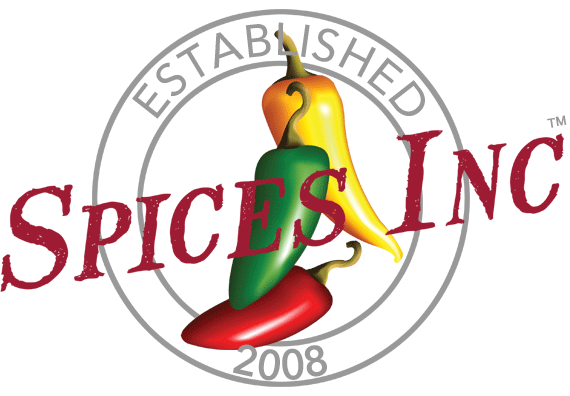How to Save Food: Fixing Flavors

When cooking, getting to know your ingredients each time you make a dish will help you season or combine new ingredients in a way that is complementary to all the other parts of the dish. Especially if you are someone who works with whole foods that are seasonal and have varying taste throughout the season, you will want to taste your ingredients and taste as you cook to determine what their flavor profile is. If you decide to skip the whole tasting thing, you may sit down to your dinner and discover your red sauce is too bitter or your bean soup is missing something acidic. Avoid this by tasting your food every step of the way and don't be afraid to incorporate some of these tips to your cooking to ensure you are getting the best flavors every time. Remember that no matter how bad it is, it can probably be saved! Unless you've accidentally burnt an entire batch of cinnamon rolls, in which case your best option is to fully weep over the tragedy and begin again.
How Do I Fix Food That's Too Salty?
This is an incredibly common question with a pretty easy answer. If your dish is too salty, you have a few options depending on if it is extremely over salted or only a little over salted. In some cases, a spritz of some acidity, like a lemon juice on an over salted fish, might help. An acid like a citrus juice or vinegar can work in the case of something that's only a little bit too salty. Of course, dilution is an option as well. If you are making soup or stew, you can add more vegetables, meat, or water to dilute the saltiness. This may mute the overall flavor of your soup or stew or curry even, but you can add just a few more spices to help bring the flavor back up to a more robust platform. However, if your dinner is saltier than the ocean, you might want to scrap it and try again. Dilution works best for dishes that are way over salted, but you do run the risk of minimizing the other flavors in the dish as well. Dilute with discretion and taste often as you dilute.
What About Food That's Missing Some Salt?
You can add salt without adding a pinch of salt. Sticking with the pasta sauce example for a moment, if you feel like your sauce is missing a salty element but you don't want to add table salt, try grating some fresh parmesan over the sauce. This will add a level of saltiness that isn't overwhelming and may in fact be exactly the level of saltiness that you need. Experiment with other sources for salt, not just table salt! Soy sauce might be the answer for a vegetable dish, while a squeeze of a salty, cheese-based dressing might be the answer for a particularly dull salad.
How Do You Neutralize Sour Taste in Food?
If a dish is too sour, add a little bit of sugar! Sweetness balances out sour flavors, so if something makes your mouth pucker, a dash of sugar may help soften the blow of the sour food. Now, this doesn't mean sour food as in food that has soured because it has started rotting or going bad. If that's the case, discard the ingredients. In some recipes, baking soda also works as an additive that will get rid of some sourness. This tip mostly works in sauces and soups, where it can be fully incorporated into the other ingredients.
If a dish is sour in the way that a sour candy is sour, making your salivary glands activate, adding a little bit of sugar is the answer there as well! Sweetness balances out all types of sour flavors, so if something makes your mouth pucker, a dash of sugar may help!
Does Sugar Reduce Acidity?
Yes, it does! Think of your favorite pasta sauce recipe. If it doesn't have a pinch of sugar in there, it probably does have some carrots! Because of their naturally high sugar content, carrots are often added to red sauces to balance out the bitterness of the tomato base. Adding some sweetness is a wonderful way to lessen the intensity of an acidic food. This is a somewhat tricky question because it is similar to the question "how do you neutralize sour tastes in food?" for some people. This is because a lot of people describe acidity as "sour" when they really mean "acidic." Luckily, sugar helps in both of these cases of unbalanced flavors.
How Do You Fix Food That's Too Sweet?
Sweet can be balanced out by acidity. Just as we previously discussed that acidity can be leveled out by sweetness, sweetness can in turn be muted by some acidity. If you have a chili or salsa for example that tastes a little too sweet, or seems like it might be missing something, balance out the sugar in the recipe with a splash of fresh lemon juice or a dash of vinegar.
How Do You Fix Food That's Too Spicy?
Add some dairy fat! Food gets spicier from a compound called capsaicin, which is found in chiles. If you have accidentally made a curry that is way too hot for you, tame that flame with a scoop of sour cream or a spoonful of a tart, plain Greek yogurt. If you made a spicy recipe that would be otherwise compromised by adding a dairy fat, just settle for drinking from a glass of dairy milk in between bites.
What's the Difference Between Bitter and Sour?
Bitterness and Sourness have one main difference. Bitter is sharp and pungent while sour is mouth puckering. Bitter foods are olives or coffee, sour foods are various types of citrus. To remember it better, bitterness is unpleasant while sourness can be pleasant and is often a flavor we seek out. This is because our taste buds have evolved to taste bitter and want to spit it out immediately, as there are many toxic substances in nature that taste bitter and would harm you if ingested.
Why Do Some People Intentionally Burn Their Food?
Unlike people who dislike or like cilantro, people who love to eat burnt food are not genetically predisposed to do so. Still, there is an increasing body of evidence that suggests these people may just really love food that has browned, even if it's been browned so much that it surpasses the Maillard reaction and reaches "burnt to a crisp" territory, simply because of their particular taste buds. When the Maillard reaction takes place, amino acids and certain simple sugars are transformed and form rings which, when reflected in the light, appear brown. These transformations are what make food smell and taste incredible. For example, you wouldn't crave a handful of pretzel dough, but the scent of the dough cooking as it wafts through the mall is enough to make your mouth water and ignite a craving for the browned pretzel. The Maillard reaction is a big part of why people love browned food, but burning food produces a bitterness that isn't commonly enjoyed. However, some people love to push the limits and do enjoy that crisp flavor. So, the simple answer to this question is that some people intentionally burn their food because they like how it tastes. If you are a person who enjoys burnt food, keep in mind that ingesting large amounts of burnt food has been linked to cancer, as a molecule called acrylamide forms. Acrylamide has been found to cause cancer in some lab studies.
Can You Save Burned Food?
Not typically, unless you're the type of person who enjoys a little bit of burn here or there. If you burn a chicken for example, you may be able to remove the skin, but you will still taste a bit of that burnt flavor in the flesh. Once something is even a little bit burnt, it is impossible to reverse the burning process, so watch your food carefully as it cooks!
These are some of the most common food questions that relate to taking a less than impressive dish and making it delicious. Whether you are a first time cook or someone looking for a refresher, this guide full of questions is sure to help you out. When working with food, be sure to trust your senses- after all, they are there to sense when something is off or when it's reached that "just right" status.
Read More

